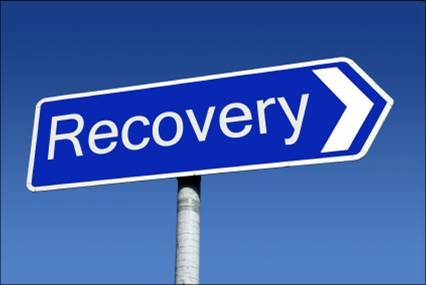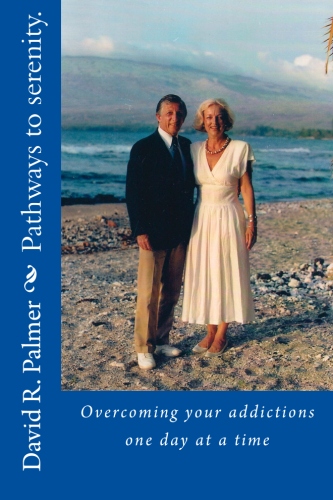Conversations about the “war on drugs,” a misguided and costly effort to shut down the supply of drugs have resurfaced. My position remains that if addicted people want something badly enough, they will find a way to get it whether it be Martinis, 16 ounce soft drinks or Hostess Twinkies. Drying up demand is the key.
If we can persuade people that there is a way to treat their addictions and live a richer life we can save a lot of money and heartache. I am not suggesting that we give up law enforcement but rather that we take it upon ourselves to reject our addictions and embrace recovery and rehabilitation with God’s help. Alcoholics Anonymous, with its 12 Step meetings is a good place to begin.
The steps are simple but require some explanation. There are two teachers of the 12 steps who come to mind.
The late Joe McQuany taught the Steps at the Wolfe Street Center in Little Rock for many years and wrote two books on the subject as well as a curriculum for treatment centers. I went through his course three times at Wolfe Street over a couple of decades before his death in 2007. I have a chapter on him in my book, “Pathways to Serenity. Overcoming Your Addictions One Day at a Time” and there are a number of videos on line.
Another teacher who comes to mind is Fred Holmquist, director of the Lodge at Hazelden, certainly one of the top three substance abuse treatment centers in the nation. He gives lectures and there are easily accessible videos of him on line as well.
I had a two-hour dinner with him ten years ago and wrote a report on his views in my newspaper, One Day at a time.
Here is a brief summary of his message followed by a list of quotes from our dinner conversation.
The Big Book of Alcoholics Anonymous, Holmquist says, “is a textbook to be studied from the beginning, and the program of action steps it presents in the first 103 pages bring us an unshakable foundation for life.”
Most AA, NA, Alanon and other meetings have the steps posted on the wall, but the problem with that, Holmquist says, is that nobody “put the instructions for working the 12 steps up there with them.”
These “wall steps,” he says, “bring us much benefit and relief” but that ‘unshakable foundation’ for life comes only from immersion in the Big Book, itself.
The three goals of a 12 Step program for recovery, Holmquist says, are, first, to identify the problem, second, to define the solution and, third, to decide and take action to bring about and sustain the solution. (The steps are posted on this site)
The problem, which is our powerlessness, Holmquist said, “defines the solution” which is power.
- “Step one,” Holmquist says, “tells me I am powerless. I can’t use, I can’t not use, and I can’t change.
- “Step two tells me the solution–the source of power.
- “Step three requires that we make a decision to seek the solution.
- “Steps four through nine transform us by enlarging our spiritual life.
- “Steps ten through twelve sustain us and keep us growing”
The disease of addiction, Holmquist reminds us, has three dimensions. There is the illness of the body–we can’t use alcohol (or some other substance). There is the illness of the mind–we can’t not use or can’t quit. And, thirdly, there is our unfit spiritual condition–on our own, we can’t change.
These three dimensions form the hopeless condition described in Step one, Holmquist says. He adds, “the solution for addiction is spiritual, because the deepest essence of our disease is spiritual.”
And what is our spiritual malady? It is, Holmquist says, “over-reliance on ourselves” which is frequently initiated at a very early age.
“Many people who eventually qualify for membership in some twelve step organization,” Holmquist said, “before the age of ten, because of a problem in their relationship with one or both parents or another figure of authority, make a conscious decision that they are going to have to go life alone and this is the beginning of a variety of maladaptive relationships with people, places and things.”
Holmquist went on to say that it is not uncommon for alcoholics and other addicts to share three traits.
“First,” he said, “they didn’t have a healthy relationship with the same-sex parent. Second, they were ‘stimulus augmenters’–overly sensitive and often intelligent. Thirdly, they had early access to alcohol and drugs.”
Once we get well, the challenge becomes one of staying well, and Holmquist had the answer. It is to be accountable for our actions and pray as described in Steps 10 and 11.
“The only time we need to work Steps 10 and 11, once we’ve been transformed in Steps four through nine, is when we wake up in the morning, throughout the day and when we retire at night. The rest of the time, we can do anything we want.”
THE TWELVE STEPS OF ALCOHOLICS ANONYMOUS
1. We admitted we were powerless over alcohol—that our lives had become unmanageable.
2. Came to believe that a Power greater than ourselves could restore us to sanity.
3. Made a decision to turn our will and our lives over to the care of God as we understood Him.
4. Made a searching and fearless moral inventory of ourselves.
5. Admitted to God, to ourselves, and to another human being the exact nature of our wrongs.
6. Were entirely ready to have God remove all these defects of character.
7. Humbly asked Him to remove our shortcomings.
8. Made a list of all persons we had harmed, and became willing to make amends to them all.
9. Made direct amends to such people wherever possible, except when to do so would injure them or others.
10. Continued to take personal inventory and when we were wrong promptly admitted it.
11. Sought through prayer and meditation to improve our conscious contact with God, as we understood Him, praying only for knowledge of His will for us and the power to carry that out.
12. Having had a spiritual awakening as the result of these Steps, we tried to carry this message to alcoholics, and to practice these principles in all our affairs.
Copyright A.A. World Services, Inc.
Rev.5/9/0





Speak Your Mind